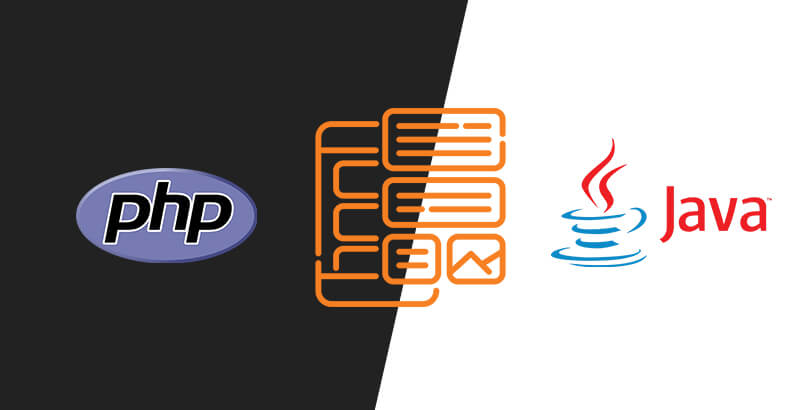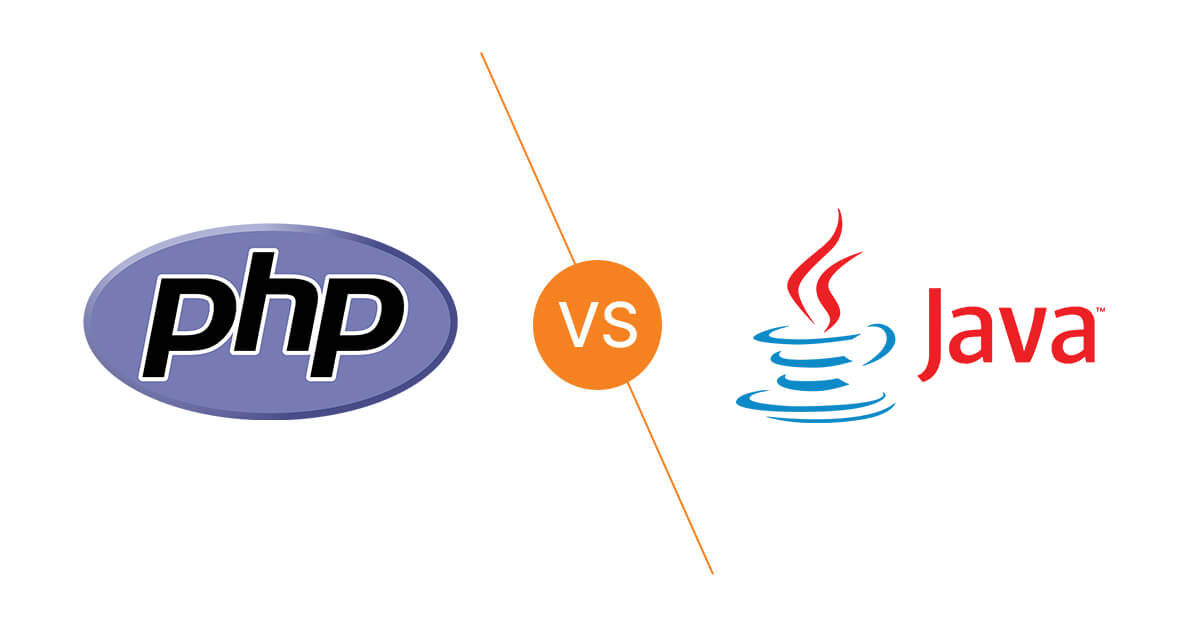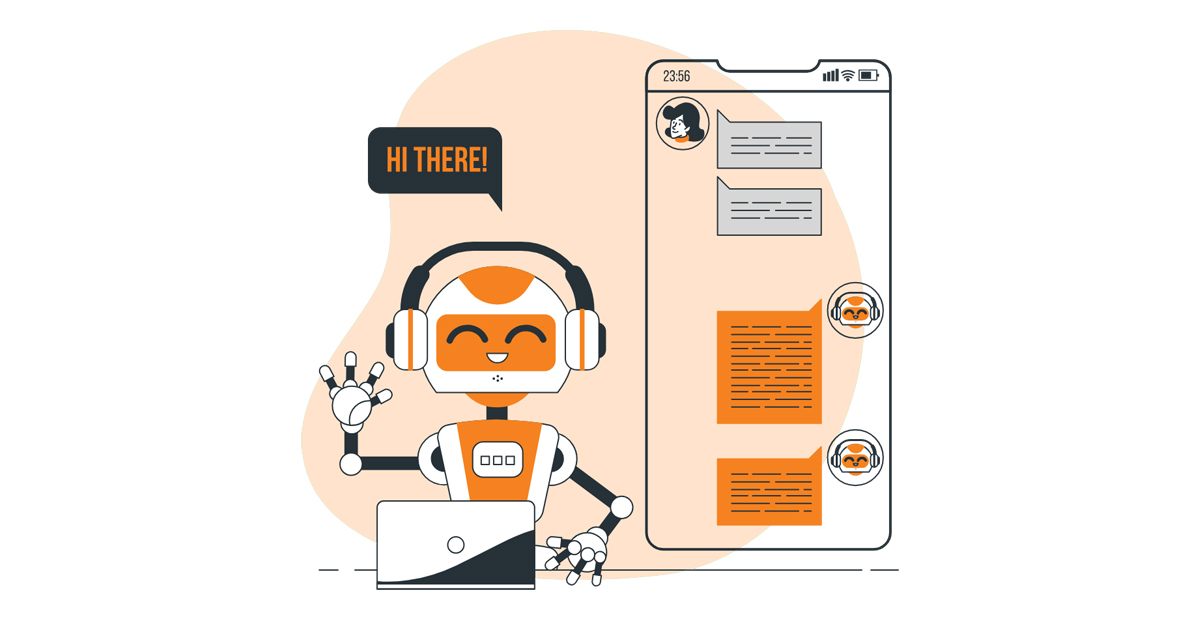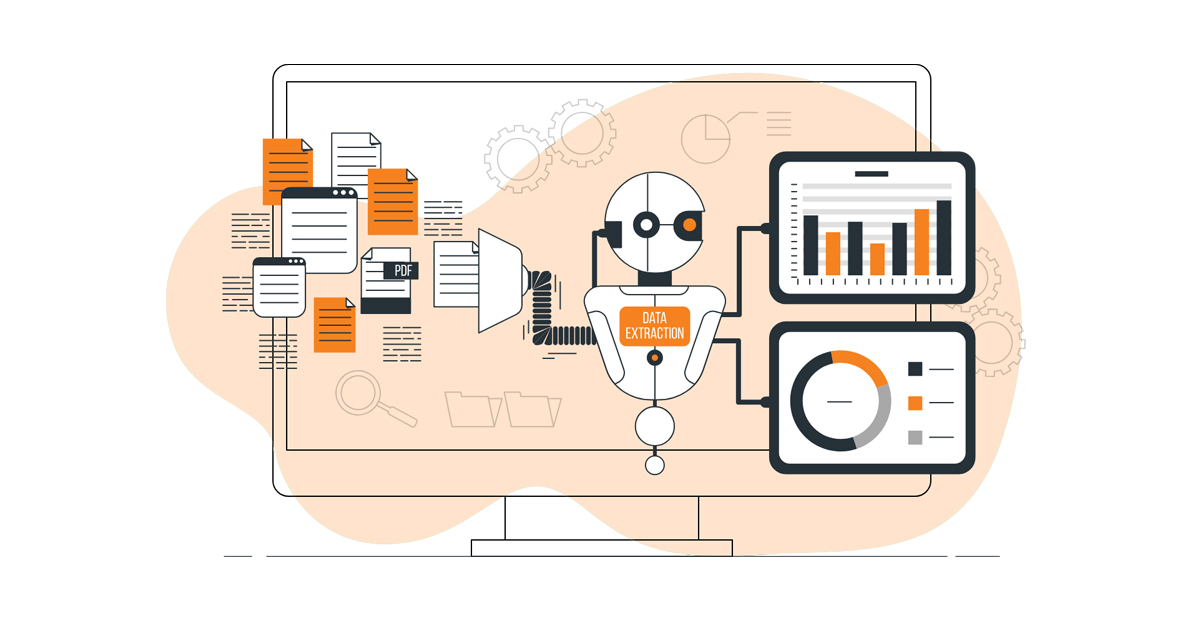Many companies have been arguing about the best programming language between PHP and Java for a long time. You might want to choose one over the other for many reasons, but ultimately it comes down to your personal preference. Suppose you’re new to creating a web app or need help finding the correct language for your next project. In that case, this article will give you insights into what each option has to offer and why those attributes matter so much in achieving success with these languages today!
Introduction to PHP

PHP is a server-side scripting language that is embedded into HTML code. It was created in 1994 by Rasmus Lerdorf, and it’s an open-source language, meaning that you can download and use it for free. In addition to being used as a web programming tool, PHP has also been integrated into many other applications such as Apache (the most popular web server) and MySQL database management system.
PHP uses dynamic programming to run tasks when the script or program requires them. This means that if you want your program/script to do something different each time it runs, then this will be done automatically by PHP because of its ability to store variables inside itself, which makes them available later on during runtime. This type of programming model allows for more flexibility than fixed-point types like C++ or Java, where all options need pre-planning before the execution takes place due directly after making decisions based on previous results obtained through calculations done beforehand.
Advantages of PHP
- PHP is the most popular web development language among enterprises and dedicated PHP developers because it supports many databases and has been around for a long time.
- It’s easy to learn – and use because it’s based on the C programming language, which makes it easier for beginners who want to get started quickly with web development stuff like HTML5/CSS3/Javascript etc., but also very powerful in terms of features such as object-oriented coding, database access, etc., making it useful for every kind of project out there!
- Many people use it in production environments – plenty of companies use PHP, from personal websites to large-scale applications like WordPress or Shopify.
- PHP is a server-side scripting language.
- PHP is a dynamic, flexible, and powerful programming language.
- PHP is a general-purpose scripting language that enables you to create your dynamic websites and web applications quickly.
Understand Which Frameworks Do PHP Developers Prefer for Web Development?
Introduction to Java

This is an object-oriented, concurrency-based, class-based programming language that is designed with as few implementation dependencies as possible. It is intended to be used on all platforms but runs only on Windows, Mac OS X, and Linux. The name “Java” comes from the James Gosling (the lead designer) initials by Sun Microsystems. Java primarily supports programmers developing applications with client-server models; it can also be used for networked multiplayer games such as Chess or checkers where multiple computers connect in real time over a network like the Internet.
James Gosling designed Java at Sun Microsystems and worked alongside Bill Joy at Bell Laboratories toward the end of the 1980s after being inspired by C in 1984 when Bruce Perens asked him if he could make an Object-oriented language instead like C++, which was developed earlier than a year by Bjarne Stroustrup from AT&T labs along with John Ousterhout from the University Of Utah Research Center who contributed ideas like garbage collection algorithms.
Java has two versions: Java SE (Standard Edition) and the newer version of Java EE (Enterprise Edition). These versions can be used interchangeably within applications developed with either product family. Still, they must be installed separately on your server if you want them to be used together in one project or application build.
Advantages of Java
- Java is a general-purpose programming language for building enterprise software development.
- It has a solid object-oriented (OO) syntax supporting interfaces and meta-programming.
- Java supports multiple virtual machines and bytecode compilation on various processor architectures, from smartphones to supercomputers.
- Java is also platform-independent. It will run on most modern operating systems with very few changes necessary. This makes it easier for dedicated Java developers who need to develop cross-platform applications and more secure because there are fewer bugs in the code base due to its portability across different environments like Linux vs. MacOS X vs. Windows XP/Vista etc.
- Java has built-in support for security features such as encryption at rest or in transit; integrity checks during runtime; access control lists; mandatory parameters checking; SafeSEH handler exceptions handling mechanism, which prevents buffer overflows attacks against vulnerable APIs exposed by native libraries used by third-party apps running within enterprise environments (e.g., JBoss application servers).
Which one should you choose for your new project?

You can use PHP if you want to build a simple web application. It also works well for dynamic websites and databases, which is great for building highly scalable and extensible websites.
Java would be the way to go if your company needs a high-performance platform with many features.
PHP is a server-side scripting language, while Java is a programming language. The main difference between PHP and Java lies in their syntax. Java has an entirely different structure than PHP, making it more challenging.
Here are the fundamental differences between PHP and Java.

When to Choose PHP?
1. Cost-Efficiency
With PHP, you can create web applications and mobile apps. You can also develop desktop applications using the language.
PHP has two types of coding: server-side and client-side. On the server side, it runs on a web server like Apache or Nginx and generates HTML pages shown to users by their browsers. On the client side, PHP scripts are executed in a browser because they are written in a scripting language called JavaScript (JS).
2. Performance
PHP is a server-side scripting language. It can be used for web development but also in other applications, such as e-commerce sites and databases.
PHP has many benefits because it’s easy to learn and use, free, and open source, and there are many great resources available online that will help you learn how to code in PHP quickly.
PHP has been around since 1995 (when it was called Personal Home Page), which makes it one of the oldest languages still being used today! This means that if something goes wrong with your website or application, plenty of people are willing to fix it for you—this makes maintenance very simple and upgrades when necessary too!
3. Security
PHP is not as secure as Java and is more prone to vulnerabilities. This means that hackers can access your site and make changes to it. The easiest way for hackers to do this is by injecting malicious code into your server or using brute force attacks on the login page.
This also means that if you’re developing an application using PHP, there’s a higher chance of having insecure code in your application than in languages like Java or C++, which are much more secure than PHP.
4. Frameworks and Libraries Availability
PHP is likely the better choice for web development. It has more frameworks and libraries than Java, so you can do more with your code. The downside is that learning how to use them effectively may take time.
When to Choose Java
Some key features make Java an ideal choice for web development:
1. Scalability and Security
The language has been around for more than 20 years and has been used to build some of the most significant applications on the internet, including Facebook, LinkedIn, and Google. Java’s popularity stems from its ability to scale across multiple devices (from mobile phones to supercomputers) without sacrificing performance or security.
2. High-Performance Applications
Java is also known as “write once, run anywhere” because it can be used in any platform or operating system because it uses bytecode instead of source code which means that no matter what platform you’re working with—from Linux down to Windows—you’ll get consistent performance across your applications regardless of where they’re running or how many users might access them at once.
This makes building scalable applications easier because there’s less customization needed on each server/client pair since all code runs precisely like before. Now, being able to write once and run everywhere makes things even better!
Here’s a secret: You don’t want to miss out on Hiring the Best Java Developer- Pick Us or Steal These Tips!
PHP vs. Java: The Verdict
There is no doubt that PHP is the most popular programming language for web development. It has a vast user base, and many companies have their web application using this language as their back-end technology.
On the other hand, Java is used in Android and Java-based games. However, if you want to build an iOS or Google Play store app, you need to use Java too!
Java is slower than PHP. Java takes time to execute, and sometimes it can be faster, but only sometimes. Java is mainly slower than PHP because of the overhead involved in running a program with multiple threads simultaneously. This means that if your code has many threads running at once, you will see a lower performance on your server or application due to all those processes competing for resources like memory and CPU cycles (usually used by one method).
Final Words
We have discussed the pros and cons of both Java and PHP. Each language has its advantages and disadvantages. However, when it comes to web development, it is better to use either PHP or Java because you can use them for desktop and web applications.
Now it is your turn to choose the best one according to your project needs and objectives. Still trying to understand it? Don’t worry. We are here to help. With us, you can hire dedicated developers for your custom projects.
Summary
Kickstart Your Project With Us!
Popular Posts
CONTACT US
Let's Build Your Agile Team.
Experience Netsmartz for 40 hours - No Cost, No Obligation.
Connect With Us Today!
Please fill out the form or send us an email to







